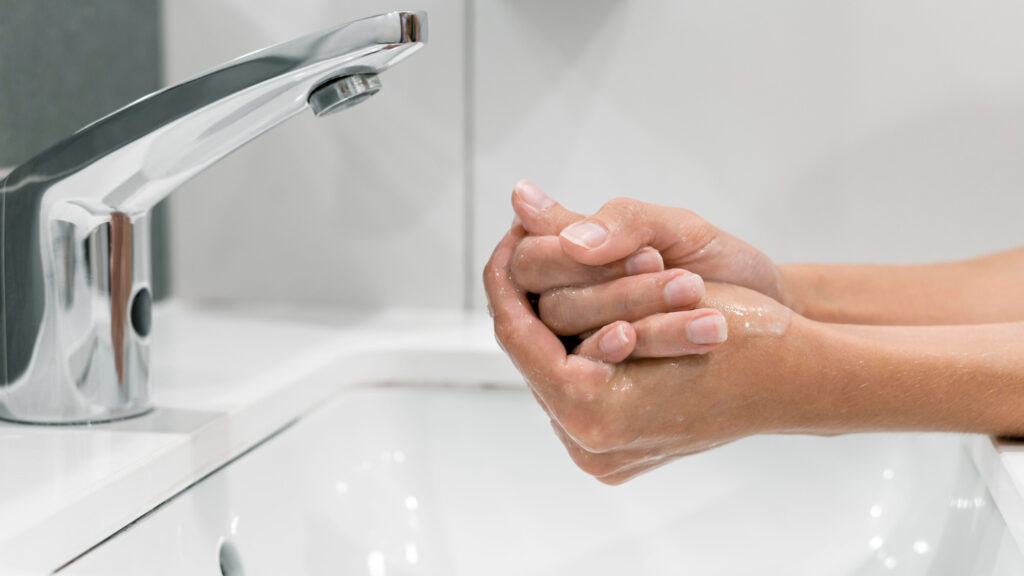It’s easy to take your eyes for granted if you’ve been blessed with good vision. But over time, visual issues can have a major negative influence on your life.
Did you know that losing your vision can actually make your life worse and increase your chances of getting depressed, diabetes, and other health problems? There are some easy things you can do every day to take care of your eyes and lower the chances of having issues down the road.
Find out why eating a diet high in omega-3 fatty acids is so beneficial, understand the cause of foggy glasses and how to avoid them, and find out which color sunglasses are best for your eyes.
Daily Habits to Boost Your Eye Health Naturally
1. Wear Sunglasses

Exposure to ultraviolet (UV) rays can lead to long-term damage to your eyes. However, you can significantly reduce the risk of eye diseases such as cataracts, sunburn, eye cancer, and growths around the eye by wearing sunglasses.
Sunglasses act as a barrier, effectively blocking harmful UV light. To ensure optimal protection against the sun’s rays and minimize glare, it is recommended to opt for polarized glasses with smoke or gray lenses.
2. Take Screen Breaks
Excessive screen time can lead to various discomforts, such as dry eyes, neck and shoulder pain, blurred vision, headaches, and digital eye strain, also known as computer vision syndrome. To mitigate the effects of this syndrome, the American Optometric Association suggests following the 20-20-20 rule.
This rule entails taking a break every 20 minutes to focus on an object at least 20 feet away for a duration of 20 seconds.
3. Take book breaks
Screen time isn’t the sole culprit when it comes to straining your eyes. Reading a book, for instance, often involves holding it up close for extended periods. Engaging in both activities can potentially result in nearsightedness, also known as myopia. This condition causes distant objects to appear blurry while objects in close proximity remain clear.
Just as it is recommended to follow the 20-20-20 rule for taking screen breaks, it is equally important to apply this rule for book breaks. Whether you are deeply immersed in a captivating book or engrossed in your computer tasks, it is crucial to set an alarm to ensure you do not overlook your well-deserved 20-minute break.
4. Regular Exercise

Regular exercise has been shown to improve eye health by promoting healthy blood vessels and lowering the chance of developing glaucoma and diabetic retinopathy. It is recommended that you engage in at least 150 minutes of moderate aerobic activity per week, supplemented by two days of strength training to build your muscles.
Additionally, including eye exercises in your regimen can successfully relieve tension and eye strain, especially if you spend long periods of time at your desk.
5. Get Outside
It is crucial for both children and adults to frequently engage in outdoor activities, regardless of whether they already meet their recommended exercise quota indoors. Numerous studies have demonstrated that children who spend ample time outdoors have a significantly reduced likelihood of developing nearsightedness during adolescence and adulthood.
Engaging in activities with your children at the nearby playground, taking leisurely strolls through the enchanting woods, or even enjoying playtime in your own backyard can greatly contribute to the overall well-being and vitality of your entire family. Moreover, it is essential to remember the significance of wearing sunglasses to protect your eyes.
6. Don’t Smoke
It is widely accepted that smoking is harmful to one’s health. Furthermore, the Food and Drug Administration (FDA) has said that smoking increases the risk of acquiring eye illnesses such as cataracts or age-related macular degeneration.
Smokers are two to three times more likely than non-smokers to acquire cataracts. Additionally, they run the risk of developing age-related macular degeneration (AMD) up to four times higher. Research into the possibility that smoking cigarettes may worsen the start or progression of diabetic retinopathy, as well as cause glaucoma, Graves eye disease, thyroid eye disease, and other eye conditions, is still ongoing.
You Can Also Read: Living Your Best: 10 Best Retirement Lifestyles Worth Embracing
7. Eat Balanced Meals

The foods you consume on a daily basis have the potential to enhance your eye health significantly. Incorporating a variety of nutrient-rich foods into your diet, particularly those abundant in vitamins A, C, and E, beta-carotene, omega-3 fatty acids, lutein, zeaxanthin, and zinc, can foster cellular growth, reduce inflammation in eye tissues, and mitigate the harmful effects of free radicals that may jeopardize your vision.
To ensure that your eyes receive the necessary nutrients, it is crucial to maintain a well-balanced diet that incorporates the following foods, as recommended by the American Academy of Ophthalmology (AAO):
1. Vitamin A and beta-carotene: Enhance your eye health by including apricots, carrots, cantaloupe, sweet potatoes, red pepper, ricotta cheese, and mango in your regular meals.
2. Vitamin C: Boost your eye’s defense system with grapefruit, oranges, lemons, tangerines, peaches, strawberries, tomatoes, and red bell pepper.
3. Vitamin E: Nourish your eyes with avocados, almonds, peanut butter, wheat germ, and sunflower seeds, which are rich in Vitamin E.
4. Omega-3: Incorporate halibut, sardines, salmon, tuna, and trout into your diet to provide your eyes with essential omega-3 fatty acids.
5. Lutein and Zeaxanthin: Strengthen your eye’s protective mechanisms by consuming collards, broccoli, eggs, peas, kale, spinach, romaine lettuce, and turnip greens, which are abundant in lutein and zeaxanthin.
6. Zinc: Support optimal eye function by including lima beans, kidney beans, black-eyed peas, lean red meats, oysters, fortified cereals, and poultry in your meals, as they are excellent sources of zinc.
8. Avoid Rubbing Your Eyes
Habitually rubbing your eyes can potentially lead to eye damage or infections. The presence of dry eyes and eye strain often triggers the urge to rub them, causing some individuals to excessively or forcefully rub their eyes.
Eye rubbing can cause a variety of problems, including decreased or blurred vision, headaches, inflammation, and light sensitivity. Furthermore, it is critical to avoid rubbing your eyes owing to the risk of transmitting bacteria or viruses from your fingers or hands, which can cause conjunctivitis, also known as pink eye.
Instead of rubbing your eyes, use eye drops or a saline solution to clean and moisturize them. It is critical to fight the impulse to rub your eyes and instead find other ways to keep your hands busy, gradually eradicating the habit.
9. Wash Your Hands

It is imperative to consistently wash your hands prior to touching your face, eyes, or handling contact lenses. Nearly 45 million Americans utilize contact lenses; approximately one-third of these individuals encounter complications. One out of every five infections resulting from contact lenses leads to corneal damage.
There’s no telling what kind of germs are present on objects you touch after someone unknowingly contaminates them. Regularly washing your hands can significantly reduce your risk of respiratory illness by up to 21% and diarrheal illness by up to 40%.
10. Take Off Your Makeup
After a tiring day, the thought of removing your eye makeup before going to bed might be the last thing on your mind. However, this simple step can greatly benefit your eye health and reduce the risk of developing blepharitis or eyelid inflammation.
To take care of your skin and eyes, it’s important to follow some smart makeup practices. First and foremost, make sure to use products specifically designed for your eyes. This will help to avoid any irritation or injury.
Additionally, it’s crucial to replace your makeup regularly, especially after recovering from an eye infection. By doing so, you can avoid any lingering bacteria that may cause further issues.
